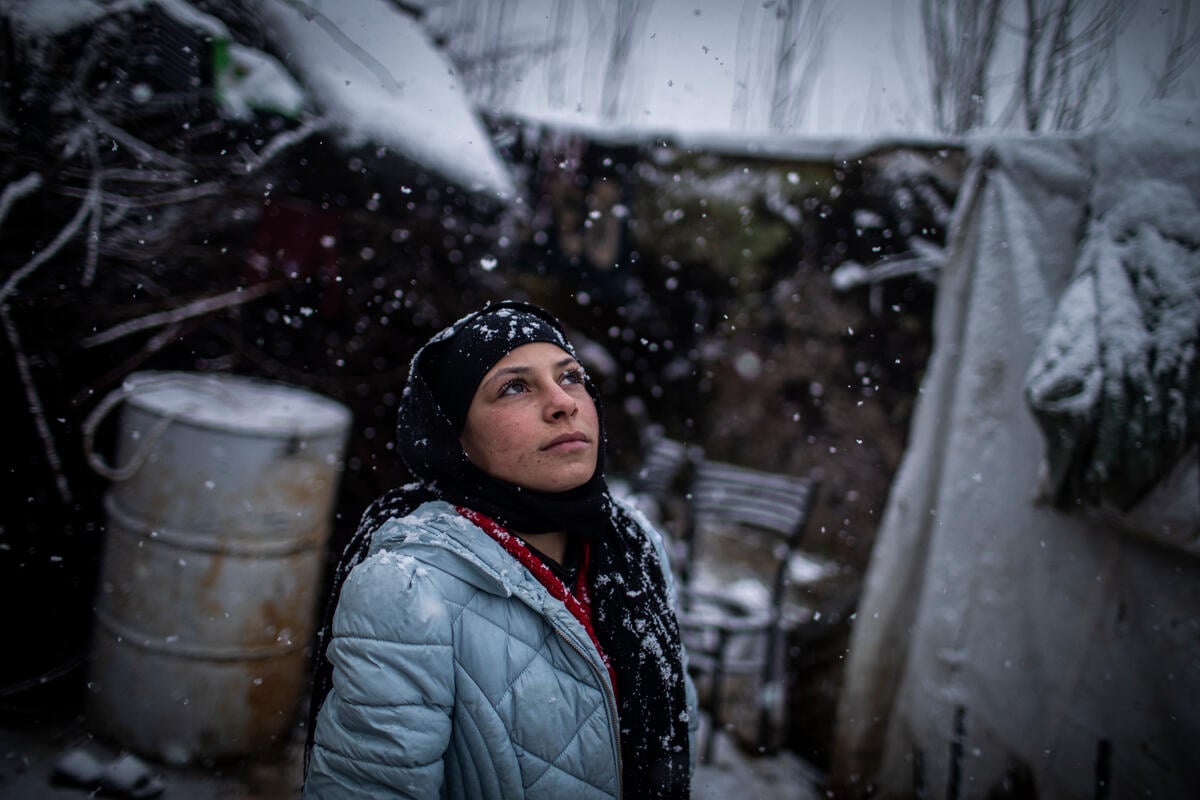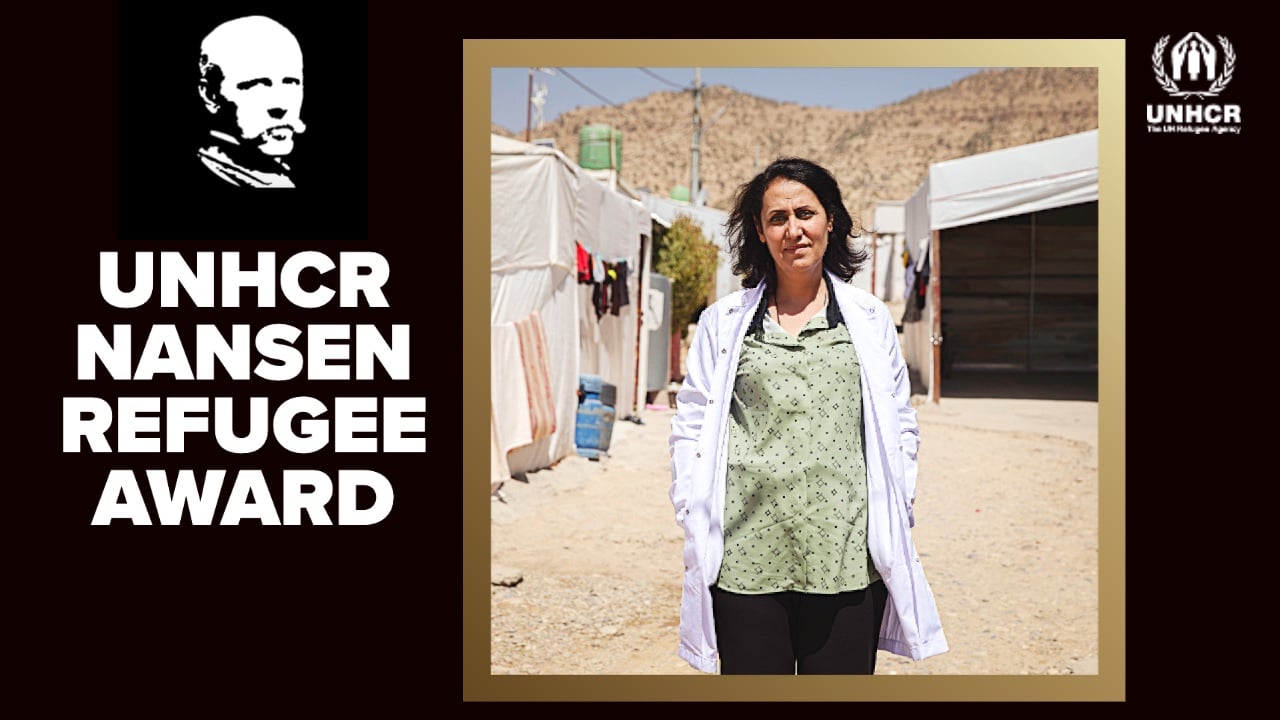UNHCR doubles budget for Iraq operations
UNHCR doubles budget for Iraq operations
Thursday, 12 July 2007
GENEVA - The UN refugee agency today announced it is doubling to $123 million its 2007 budget for hundreds of thousands of uprooted Iraqis inside their strife-torn country and in nearby states.
"The needs of Iraqi refugees and internally displaced are enormous and growing by the day," said UN High Commissioner for Refugees António Guterres. "So, too, is the strain on host governments and communities struggling to cope with the massive numbers of Iraqis who have fled their homes. UNHCR's revised appeal seeks to increase support to both the uprooted and those hosting them, but it must also be part of a much broader international effort because the problem is so huge."
A revised UNHCR appeal issued Thursday says the massive and sustained displacement of Iraqis in the face of extreme violence continues unabated, with a significant impact on the surrounding region. More than 4 million Iraqis have been uprooted - some during the former regime and hundreds of thousands of others since 2003. About 2 million Iraqis are in Syria and Jordan alone, and another 2 million are displaced internally.
Calling it the largest population movement in the Middle East since Palestinians were displaced following the creation of the State of Israel in 1948, the appeal notes that at least one in seven Iraqis is uprooted, with 2,000 more estimated to be fleeing their homes daily. Since early 2006, an estimated 822,000 Iraqis have fled their homes to other areas inside the country.
The $123 million revised budget includes an earlier UNHCR appeal in January for $60 million, an amount already surpassed by donors. So far, UNHCR has received $67 million for its Iraq operations. Another $10 million is pledged or in the pipeline.
UNHCR has already registered 150,000 Iraqis in neighbouring states. Some 9,000 of the most vulnerable Iraqis have been referred to third countries for resettlement, including some 8,000 to the United States. More than 20 percent of those resettlement cases are classified as women at risk.
Throughout the region, about 60,000 displaced Iraqi children are attending school. Some 10,000 Iraqis a month are utilising UNHCR-supported health care facilities, with another 10,000 being provided with regular food support. UNHCR's emergency stockpiles have a current capacity to support 150,000 beneficiaries. In Iraq, UNHCR's Protection and Assistance Centres are now covering all of the country's governorates. The agency has seven offices in Iraq. Emergency life-saving assistance is being provided to Palestinian refugees in Baghdad, as well as to the increasing numbers who are fleeing the capital to desolate border camps.
But the appeal notes much more needs to be done.
"UNHCR registration data and surveys indicate that at least 10 percent of Iraqi displaced families are female-headed and over 30 percent of the total population have special needs," the document says. "Thousands of Iraqis approaching UNHCR are the victims of torture, sexual and gender-based violence, car bombings or other violent attacks and are in urgent need of medical care. The majority of Iraqi children are not attending school."
A recent survey in Damascus indicates that 76 percent of refugee children are not in school, many of them for two or three years. The same survey found that 80 percent of Iraqi refugees depended on fixed savings or charity and that 34 percent had insufficient funds to last even a month.
UNHCR's updated appeal will focus on activities both inside Iraq and in surrounding countries. In Iraq, the agency will boost its provision of aid supplies for up to 100,000 vulnerable people, including emergency shelter in a growing number of makeshift camps housing increasing numbers of displaced people. It will also promote the establishment of inter-agency humanitarian aid depots to support the delivery of emergency assistance and provide life-saving help to the most vulnerable refugees. This will include rental subsidies for Palestinian refugees in Baghdad and aid to those stranded at the border with Syria. The agency will maintain an aid stockpile for to 300,000 beneficiaries, including 100,000 inside Iraq.
Outside Iraq, UNHCR will focus on five areas of assistance - education, health, food, social and legal counselling and shelter. In education, it is supporting the construction of 10 schools and the rehabilitation of 100 others. It is also working closely with UNICEF to increase the number of Iraqi children in schools in the region from 60,000 to 200,000 by the end of the 2007-08 school year. This project will be the subject of another appeal. In the health sector, the agency will increase the number of refugee medical referrals from 10,000 a month to 20,000 by the end of the year. With the World Food Programme, it will expand food distribution for vulnerable families and in schools, and promote supplementary feeding programmes for those most in need. By the end of this year, 20,000 Iraqis will be referred for resettlement. Eight community counselling centres have already been established and 12 more will be completed by year's end.
UNHCR currently has over 300 staff working on its Iraq programmes in Syria, Jordan, Lebanon, Turkey, Egypt, Iraq and in the agency's Geneva headquarters.








